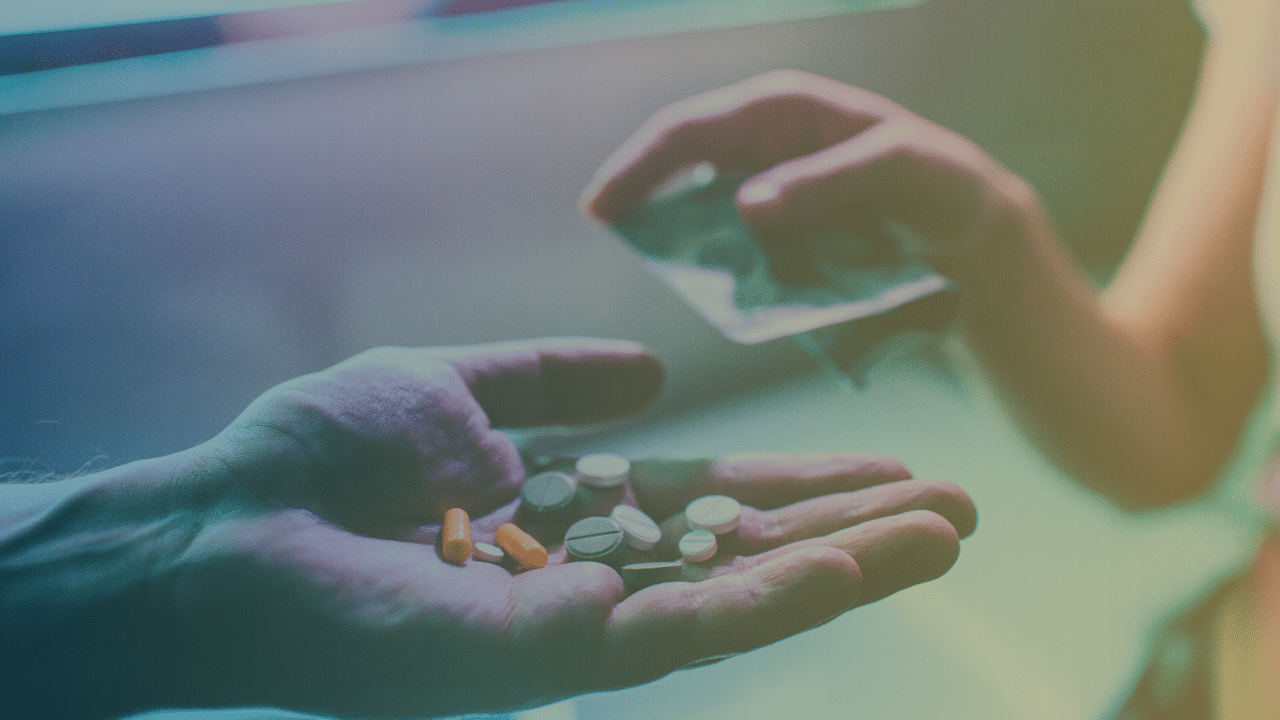While the concept of addiction could seem black-and-white at times, the process of becoming addicted to a substance is much more complex than one might think. Addiction is a very complicated disease that builds slowly and gets more intense over time.
Addiction can be broken down into five general stages, with the first being the mildest and the last being the most serious. These stages are used to outline the framework of how an addiction forms. Below, we’ll break down the symptoms and risks that come with each stage of addiction.
What Is Addiction?
According to the American Society of Addiction Medicine, “Addiction is a chronic brain disease that affects the brain’s reward, pleasure, memory, and motivation.”

A person can become addicted to alcohol, prescription medications, over-the-counter medicines, illicit substances, or even caffeine. Most serious cases of addiction either involve alcohol, an addictive prescription, or an illegal drug like heroin or cocaine.
While anyone can form an addiction, some individuals are more vulnerable than others. Vulnerability will depend on several factors including genetics, exposure to drugs, living environment, mental health conditions, and more. For example, a person who was exposed to drugs in the home at a young age may be more likely to experiment with drugs early, start using them recreationally, and eventually form an addiction.
Drug & Alcohol Addiction: The Five Stages
The five stages of addiction can take months or even years to develop, depending on the individual. But once someone gets to the next stage, it will be difficult for them to return to the previous one without receiving some sort of treatment.
Here are the five main stages of addiction:
- First Use/Experimentation – A person is in this stage when they use a drug or try alcohol for the first time. While some people can experiment without ever developing an addiction, some have a harder time fighting the disease once they try something.
- Regular Use – Someone in this stage may consider a substance as part of their lifestyle. Using their drug of choice may help them feel more comfortable in social settings.
- Problem Use/Risky Use – A person displays risky use when they have faced problems or dangerous situations due to a substance but still continue to use it.
- Dependence/Tolerance – Someone is dependent on a drug when they need it to feel good or when they crave a substance if they don’t have it in their system.
- Abuse/Addiction – A person is in this final stage when they can’t function without their substance of choice. They have faced consequences from using it, but it hasn’t stopped them from seeking out and abusing the substance.
Treatment for Alcohol or Drug Addiction
There are many treatment options available to help people struggling with addiction get back on their feet and start feeling like themselves again. Individuals who have an abuse problem are encouraged to enroll in an inpatient or outpatient rehabilitation program to begin treatment.
Treatment will usually begin with medically-administered detox. During the detox process, drugs or alcohol will try to work their way out of a person’s system. This could result in uncomfortable symptoms known as withdrawal. While withdrawal is definitely not pleasant, it is usually not dangerous if it is overseen in a medical environment. After detox, doctors may recommend treatments like talk therapy, group meetings, career counseling, medication, and more.
Have any more questions about the process of addiction? Our team of substance abuse treatment specialists are available to offer insight, resources, treatment options near you, and more. Contact us by calling 267.719.8689 for more information today.
Sources
https://americanaddictioncenters.org/the-addiction-cycle
https://www.medicinenet.com/what_are_the_4_stages_of_addiction/article.htm





